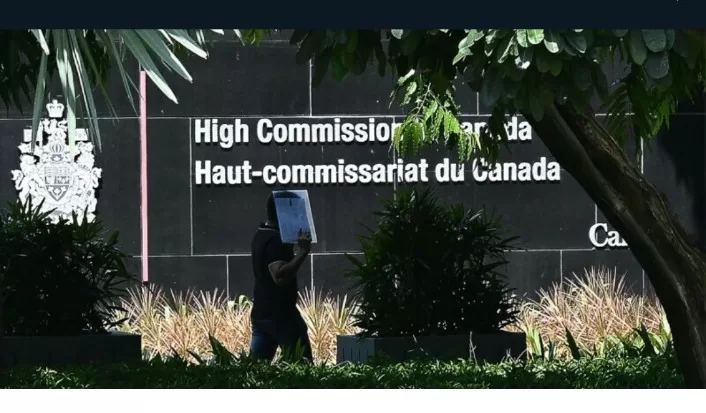In a recent diplomatic rift between Canada and India, Canada has declared the temporary suspension of in-person operations at its consulates in several major Indian cities, including Bengaluru, Chandigarh, and Mumbai. This decision follows the withdrawal of 41 Canadian diplomats from India, a move that underscores the escalating tension between the two nations.
The dispute stems from the murder of a Sikh separatist leader in British Columbia, Hardeep Singh Nijjar. Canadian Prime Minister Justin Trudeau raised concerns about a potential link between Indian agents and Nijjar’s assassination, an assertion strongly denied by the Indian government. Last month, India requested that Canada reduce its diplomatic presence in the country, leading to these recent developments.
Canada’s Immigration, Refugees and Citizenship Canada (IRCC) department has also scaled down its staff presence in India, reducing it from 27 employees to just five. This reduction is expected to impact visa processing times, although it’s worth noting that the majority of these processes are managed abroad.
Canada emphasizes its enduring connection with Indian citizens, expressing its commitment to welcoming them for various purposes, including tourism, work, study, family reunification, and permanent residency. With approximately 2 million Canadians of Indian heritage, constituting around 5% of the total population, and India being a significant source of foreign students, this connection is both cultural and educational.
Despite the diplomatic tension, Indian government sources have clarified that they do not intend to impose any measures to restrict imports or investments from Canada. Bilateral trade between the two nations, which amounted to $8 billion in 2022, is expected to continue uninterrupted, ensuring economic relations remain intact.






